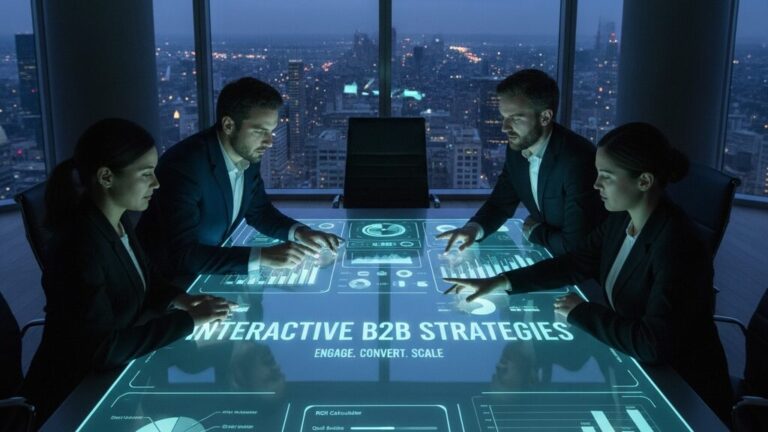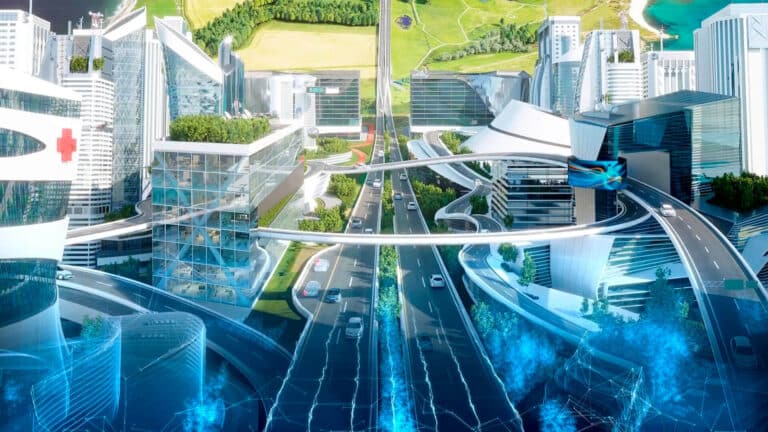
What are the latest industrial metaverse and AR trends? Stereoscape’s industrial solutions expert Kenneth Korhonen reports from TeamViewer EMEA Partner Summit 2023 in Manchester, UK.
Manchester – the place to be!
As much as I believe in doing things remotely, there’s always a special joy in travelling and meeting colleagues in real life. And what better place to explore industrial metaverse and empowering workers than Manchester, once the beating heart of Britain’s industrial revolution? I have always wanted to see Manchester United play against Barcelona so the trip turned out to be a great way to kill multiple birds with one stone.
What’s industrial about the metaverse?
We’ve all heard both the hype and scepticism around the metaverse, particularly relating to the huge investments and subsequent divestments by META. The potential of social engagement in a three-dimensional, virtual internet is one thing. But how do funky avatars dancing in a virtual jungle relate to businesses, and the industrial sector, in particular? Is it all just a gimmick?
Part of the Manchester partner event was dedicated to future trends in industrial AR. Futurist Nils Müller sees the industrial metaverse as yet another leap in the evolution of computing and the internet. If you think of the internet of 1995 as a typewriter connecting people, web 2.0 disrupted the media industry because it suddenly allowed people not just to read content online, but to become creators and publishers of their own content. The next leap, as Müller sees it, is ownership and “jumping in” to the internet – experiencing the web not just as a flat 2D screen but a three-dimensional space.
The appeal of a spatial dimension makes sense because us humans – with our stereoscopic vision – are three-dimensional creatures. Rather than spending more time on flat screens, the metaverse holds the potential to visualise more complexity and collaborate more intuitively – precisely because of the introduction of a third dimension. This new wave of evolution is stimulating a whole new economy and many business opportunities – just like the previous iterations of the internet did.
“Every business will be in metaverse in the future. We’ll be in 3D, because we are three-dimensional human beings.”
Nils Müller, Futurist, Trendone
Anticipating trends in industrial metaverse
Müller fleshed out a possible future in 2030: hyperconnected multi-user multi-touch-based AI optimisation with 100 billion devices connected to the internet. Of course, nobody has a crystal ball, but from various technology experiments we can image things like multi-purpose robots and multi-disciplinary AI, utilising facial and speech recognition and creating life-like, complex avatars. Whilst all of this sophisticated technology will over time find practical applications, for now industrial metaverse can mean much more down-to-earth improvements to industrial workers’ lives.
“We cannot predict the future. But we can create it.”
Nils Müller, Futurist, Trendone
Why do frontline workers need AR?
For those working in desk-based roles it may come as a surprise that there are 2.7 billion people out there in the world who currently don’t have access to digital information in their daily jobs.
“The point of industrial AR or industrial metaverse is to get digital information to these workers, when they need it, to help them solve problems and train better.”
The result is happier, more empowered workers that make fewer mistakes. The improvements in quality are then passed on to customers.
TeamViewer leads the way into industrial metaverse
TeamViewer is a platform that brings together productivity solutions specifically designed for frontline workers. The platform includes ready-to-use tools for logistics, manufacturing, field support, maintenance and remote assistance, and comes with templates and best practice examples from the field.
It’s important to point out that the technology is there to support and augment human intelligence – not to replace it. To give a simple example from the shopfloor: AI can inspect packages in a fraction of a second, where it would take a human a very long time.
“The value is less about the technology and more about augmented intelligence.”
Industrial metaverse deployment across sectors, worldwide
Currently the largest footprint of case studies and deployments of TeamViewer’s solutions are in the automotive, manufacturing, food and beverage and logistics sectors. The company has the world’s largest deployment of industrial AR with Ford, helping their dealerships solve problems real time. Meanwhile Coca Cola uses TeamViewer across 40 of their warehouses, where 600 of their pickers use AR daily.
Volvo Trucks in Sydney use TeamViewer’s picking solution in their warehouse and have reported huge quality improvements and happier workers. A key in successful deployment is consulting the workers at pilot stage and really listening. The technology helps the workers solve problems, which means people can focus on being safe, comfortable and happier at work.
“A lot of exciting AR technology is already deployed and at use.”
Easy-to-use technology is embraced by workers
For some people, it’s not the concept of industrial metaverse they doubt, but the readiness of technology like augmented reality – or resistance to change from workers. Given the ageing workforce in the frontline roles, can the workers adapt? Are smart glasses wearable? Do they make people dizzy?
The Volvo Trucks case study from Australia is a wonderful example of how well wearable AR can work, when workers’ concerns are listened to and problems are solved together at the planning stage. Many frontline workers come from older age groups, so simplicity of interface and one-click solutions are key.
Industrial AR infrastructure is going mainstream
Another recurring customer concern I’ve heard is integration with other, pre-existing systems. The good news is TeamViewer has this covered, with solutions in place with SAP and strategic partnerships with Apple and Google Cloud. The TeamViewer system works on tablets and smartphones as well as hands-free devices, so getting started is simple and easy.
The solutions are accessible through one single interface and work in both 2D and 3D, and the company is constantly developing its solutions based on customer feedback. In the near future TeamViewer is focusing on key elements of the service, including faster and larger volume deployment, simpler integration, documentation, training and expansion into mobile.
The human is and remains at the centre in industrial metaverse

One of the ideas that struck me at the event was the distinction between “social” and “industrial” metaverse. Rather than gimmicky sci-fi of the future, the industrial metaverse is already here. It’s a blend of physical reality and the digital world, connecting systems, devices and people, with AR as a key enabling technology.
Large corporations around the world are busy exploring and testing the ground through various pilots in the metaverse. Whether it’s creating virtual simulations or digital twins, real-life design projects can be optimised by leveraging employee experiences in virtual space. 3D visualisation can really help people understand more complexity and create deeper insights.
If there’s one thing I’d like to bring back home from Manchester, it’s that industrial AR is a proven technology that creates real value to enterprises and people. The technology is out there and being used by companies every day. Nobody’s saying that people or reality don’t matter. They do – and can be enhanced with digital data. So let’s get exploring!
“Industrial AR is being used by companies every day, creating real value to enterprises and people.”
Interested to learn more about industrial metaverse?
Stereoscape’s Connected Worker solutions
Why do companies need a metaverse strategy?
Metaverse platforms and user experiences
How do industrial companies and frontline workers benefit from AR tools?
Are you keen to discuss industrial metaverse with Kenneth?

Take a call 👉 +358 40 730 0678
Or send an email 👉 [email protected]

